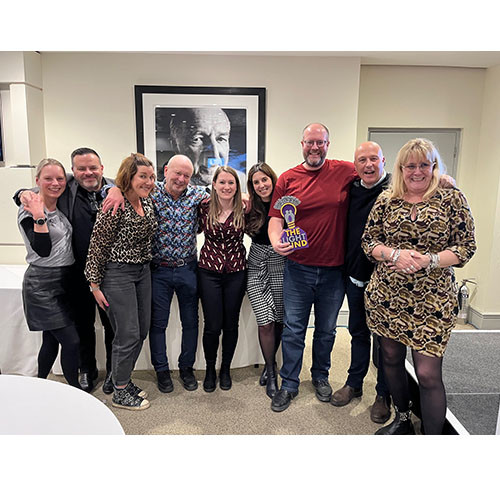Start Licensing’s Ian Downes takes a trip to Autumn Fair at Birmingham’s NEC this week.
I made two trips to Autumn Fair in Birmingham this week. Some may feel spending two days at this fair is excessive, but I have always found it a productive way of meeting existing licensees, scouting out new business and trendspotting.
Of course, it’s not a licensing show. It is a retail facing show, so sometimes you have to accept a virtual door being slammed in your face if you step onto a stand to sell especially if it is a cold call. I like to think I can pick my stand and my moment. This year I noticed a real resistance to licensing from some of the companies I approached. I didn’t even get to mention a specific brand.
The general feedback I got was that they perceived licensing to be expensive, risky and too complicated. It is possible to counter these points but it is concerning that some companies are reluctant to consider licensing. My philosophy has always been that licensing needs new companies to thrive and survive. New companies can help open up new channels of distribution and contribute new design ideas. Licensing can also help companies compete in a competitive category. A company like Paladone is a really good example of how a well managed licensing portfolio can help a company grow and expand into new categories.
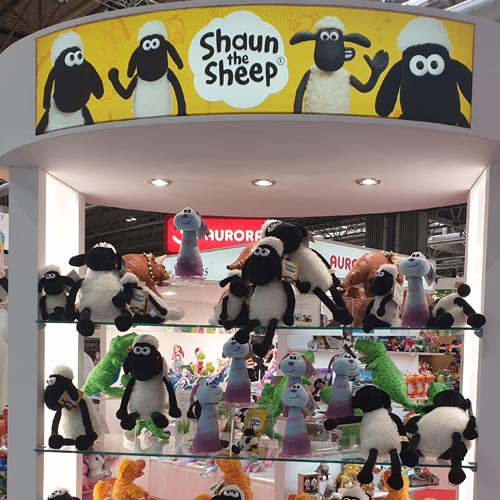
Maybe I just had a bad couple of days or perhaps I was wearing the wrong aftershave, but I think as an industry we need to be mindful of how we are perceived by some companies. Maybe we should be building up some case studies of success at an industry level to sell licensing, but I sense one of the barriers to entry is that people perceive licensing to be admin heavy and expensive. These are issues that can be addressed and maybe tackled in a direct manner. We can also address this on an individual company by company basis.
Beyond this I found the show useful in terms of connecting with existing partners and trendspotting.
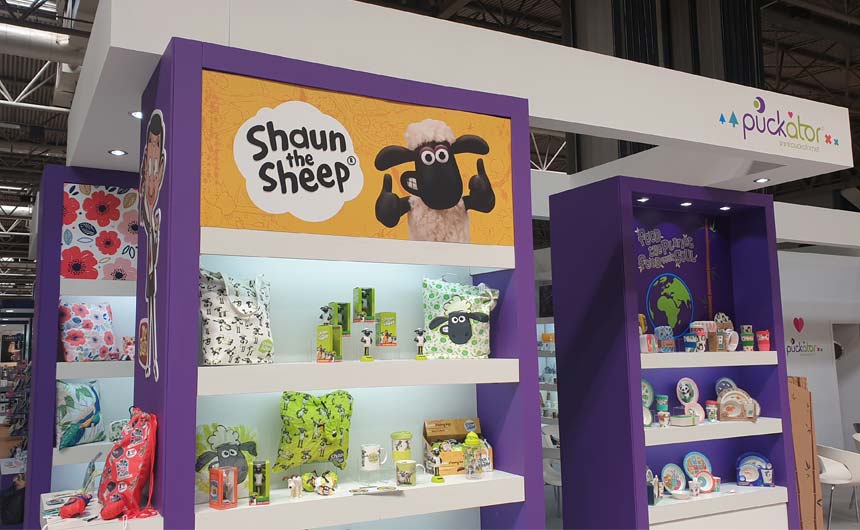
Wearing my hat as Aardman Animation‘s UK agent it was good to see how a number of licensees are building and developing their Aardman ranges. Licensing can and should be a long-term game.
Puckator has grown its range which started as one focused on its Solar Pals into a broader gifting range featuring some specific Shaun the Sheep artwork. This is a good example of nurturing relationships in licensing. It was also good to see the likes of Aurora and Half Moon Bay launch new products. All licensing programmes need to be refreshed from time to time.
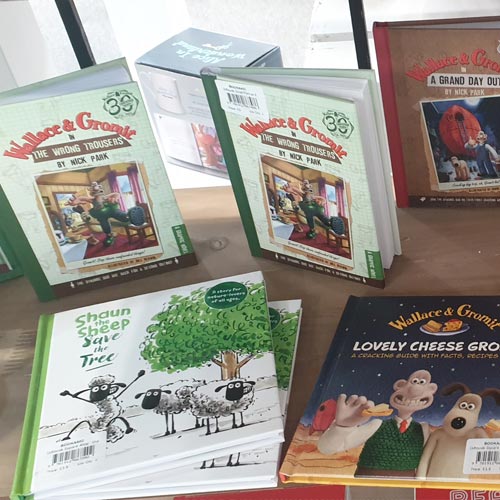
It is also good to see a long-term gift licensee like Half Moon Bay entering a new category – its range of gift books has opened up a lot of new opportunities for it and the respective licensors. It is good to see licensees prepared to build new business opportunities. I also think we can all help the wider industry by supporting new companies and start ups. This presents challenges but think of it as a long-term investment.
In this vein it was good to see that Myne Cards has linked with distributor EastWest to sell its range of ‘contactless’ security cards. Having secured a range of licences such as Beryl Cook, The National Gallery and Wallace & Gromit, Myne Cards has recognised it needs to build further distribution. Sometimes this is best achieved by a third party. Contemporary licensing often requires a new mindset – business can be delivered in different ways.

Trendwise I was encouraged to see licensees like Lagoon being mindful of developing licensed products that made good use of the licensed brand and ones that represent the brand well. It has a range of classic Ladybird Books jigsaw puzzles. These are sold in boxes that resemble the classic book format and as such dial up the nostalgic nature of this brand well. This attention to detail can help elevate a product.
It also presented a range of products featuring the Imperial War Museum – the museum sector is getting more and more traction in licensing. Indeed, another highlight was Seedball‘s range of Natural History Museum seedballs. Developed with specific seed mixes approved by the museum, this is a good example of how a well chosen licence can help a company project itself to a wider audience and can use a licence to add further authority to its product offering. Working with the Natural History Museum has given Seedball new marketing ammunition to work with.
Licensing shouldn’t be a one way process and it is good to see licensees which are investing in NPD and specific ‘on brand’ developments. Gifting licensee Paladone invests in NPD within its licensing range creating new products and developing new categories. It has spent a lot of time developing lighting products in a bespoke way featuring licences like Star Wars and Harry Potter. It is good to see someone developing a category like lighting in a fresh and innovative way. There are a few other stalwart licensing categories that could do with some new ideas and fresh NPD.
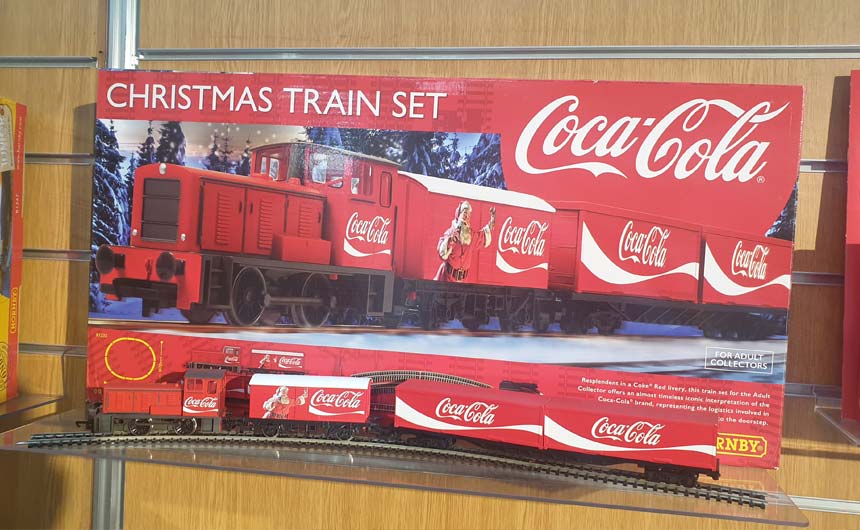
I was also impressed by how Hornby has tapped into the Coca-Cola brand. You wouldn’t automatically put Hornby and Coca-Cola together, but Hornby has developed a train set that dials up the soft drink brand’s Christmas advertising. A neat idea and one that also dips into the Christmas decoration market – I understand there is a market for Christmas train sets (based on my trips to garden centres in the festive season). This is an example of looking at a brand in the round and understanding all its touchpoints.
Beer Buddies is another licensee that is taking a focused approach to licensing. It already had Motörhead and Judge Dredd licences, but has recently added an Iron Maiden licence to its range. It has looked at its customer and account base to inform its licensing decision making and also looked at wider trends. There is an Iron Maiden beer that has done well at retail and in pubs – this shows the value in looking at licensing opportunities from different sectors and also tapping into properties that have a passionate fan base.
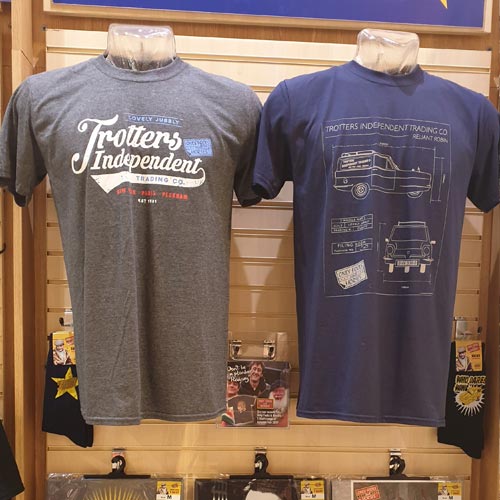
This is by no means a niche opportunity, but licensees like Beer Buddies know they have to seek out the fans and delve into social media coupled with proactive PR to reach consumers in new ways. Sometimes you have to create your own retailer network. Likewise t-shirt company Spike has a great track record of spotting properties that have a fan base while fitting into its more specialist souvenir, tourist and giftshop distribution. A prime example of this are its Only Fools and Horses and Dad’s Army ranges. These are two properties that have strong recognition and are also still shown regularly on TV. They are also good illustrations of the fact that licensing can reach a more mature customer and that there is probably a lot of new opportunities for licensing properties that resonate with older consumers.
So I think my ‘Return to Birmingham’ tour was worth it despite the knockbacks I received. I still think it is worth investing time in prospecting at trade shows and it is, of course, a great source of inspiration for future developments. It is also a good source of Bags for Life… I think I now have enough to open my own Bag for Life Museum – there might be some licensing potential in that…
Ian Downes runs Start Licensing, an independent brand licensing agency. His Twitter handle is @startlicensing – he would welcome your suggestions for what to look out for.





















